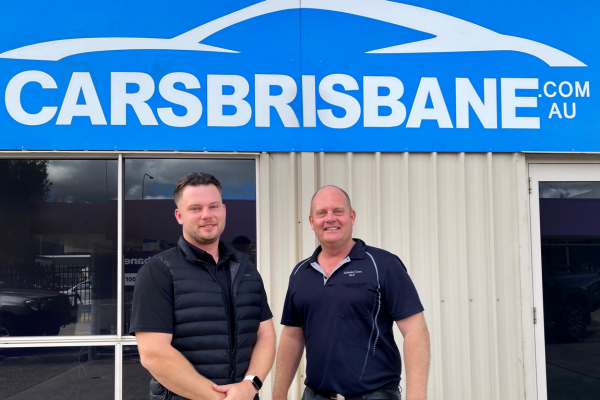Buying or selling a car can be an exciting and significant investment, but unfortunately, the car sales industry is not immune to scams. As technology advances, so do the tactics employed by scammers looking to take advantage of unsuspecting buyers.
This blog will delve into some common car sales scams and provide valuable tips on protecting yourself from these deceptive practices.
Fake Buyers: A Mirage of Trust
Fake buyers often pose as out-of-town individuals who express interest in purchasing a vehicle remotely. They propose arrangements for bank transfers and vehicle transport but throw in a deceptive twist. The scammer requests the seller to contribute to courier fees or insurance, promising reimbursement for the vehicle’s payment. Once the unsuspecting seller makes the payment to a third-party account (controlled by the scammer), all communication abruptly ceases.
Fake Sellers: The Illusion of Irresistible Deals
Approximately 70% of used car sales scams involve fake sellers advertising vehicles they do not own, often at enticingly low prices. These sellers evade personal meetings or inspections, pressuring victims into making payments through bank transfers or fake websites, and subsequently vanish without delivering the promised vehicle.
ACCC Deputy Chair Catriona Lowe warns buyers to be cautious if sellers claim unavailability and insist on pre-payment. She advises inspecting the vehicle before purchasing and avoiding unusual payment methods.
The ‘Defence Force’ Scam: Creating Urgency with a False Sense of Duty
Some scammers claim to be defence force members, citing deployment overseas as a reason to sell their vehicles at unusually low prices urgently. In 97% of reported car sales scams, scammers impersonated navy, army, or air force personnel, often using fake emails to create a facade of legitimacy. Buyers are urged to scrutinise all warning signs, including implausibly low prices.
Payment Through Third-Party Websites: The Elusive Upgrade
Scammers often seek payment through third-party websites such as PayPal or PayID. By claiming that the seller’s PayID account needs an ‘upgrade,’ scammers trick victims into making additional payments, leading to the disappearance of transferred funds. Australians lost over $260,000 in 2022 through PayID scams, emphasising the need for caution and verification.
Signs it’s a scam:
- You receive an email claiming to be from PayID advising you have been paid, but no money appears in your bank account.
- You are asked to pay money to settle an overpayment, “unlock” or “upgrade” your account.
- You are contacted by someone claiming they cannot pick up the item and will have a family member do so on their behalf.
- You are asked to receive payment via PayID but also asked for your email address or other irrelevant contact information.
Odometer Tampering: Old Trick with a High-Tech Twist
Odometer tampering, the oldest trick in the book, has taken on a high-tech dimension. Computers in new cars enable scammers to replace or reprogram odometers using fraudulent software. Authorities have reported significant mileage reductions, emphasising the importance of due diligence, licensed repairer inspections, and thorough vehicle history checks. In the ever-evolving landscape of online car sales, vigilance and informed decision-making are your best defences against falling victim to these sophisticated scams. Stay alert, conduct thorough research, and remember: if a deal seems too good to be true, it probably is.
Online Auction and Classified Ad Scams
The internet has revolutionised how we buy and sell cars, but it has also given scammers a new platform to carry out their deceitful schemes. One common scam involves fake online auctions or classified ads. Scammers create listings for cars that don’t actually exist or are stolen, enticing buyers with unbelievably low prices to lure them into a financial trap.
Tip: Always deal with reputable online platforms and insist on meeting the seller to inspect the car before making any payments. Be wary of deals that seem too good to be true.
Title Washing
Title washing is a practice where a car’s history, particularly its salvage or flood status, is concealed to make it appear as if the vehicle is in better condition than it actually is. Scammers often manipulate vehicle titles across different states to erase negative information, leaving buyers unaware of potential issues.
Tip: Obtain a vehicle history report from a trusted source, and pay attention to any inconsistencies or discrepancies. Additionally, have a trusted mechanic inspect the car before finalising the purchase.
Phony Escrow Services
Scammers sometimes use fake escrow services to create a sense of buyer security. They claim that the money will be held in escrow until the transaction is complete, but in reality, the escrow service is a sham, and the funds disappear once transferred.
Tip: Use reputable and well-known escrow services. Research and verify the legitimacy of the service independently before proceeding with any transactions.
Pressure Tactics and Upselling
Some unscrupulous dealers use high-pressure sales tactics to manipulate buyers into making impulsive decisions. They may push unnecessary add-ons, financing options, or warranties, taking advantage of the buyer’s lack of knowledge.
Tip: Take your time during the purchasing process. Research the car’s value, understand financing terms, and be prepared to walk away if pressured.

Awareness of common car sales scams is the first step in protecting yourself from deceptive practices. Whether you’re buying from a private seller or a dealership, exercising caution, conducting thorough research, and seeking professional advice can help ensure a smooth and legitimate car-buying experience.
Stay informed, trust your instincts, and don’t hesitate to walk away if something feels off – it’s your hard-earned money on the line.


